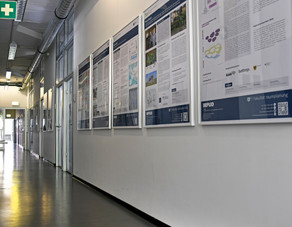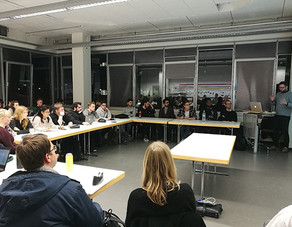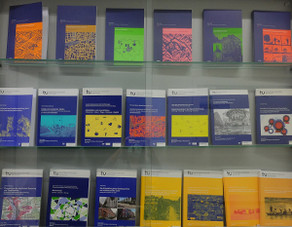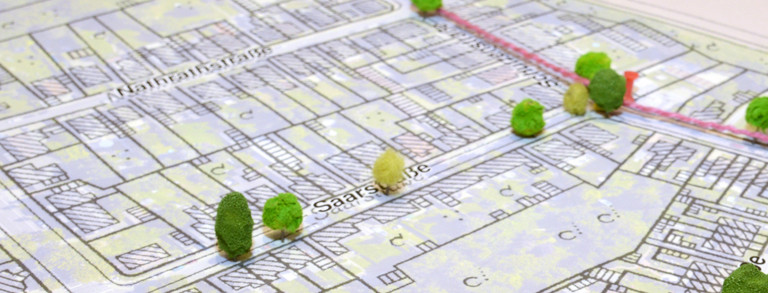The Division of Functions within the German System of Metropolitan Regions
Project duration: 03/2009 to 03/2012
Survey and analysis of metropolitan functions in the system of German cities
Through the spatial planning concept of metropolitan regions the role of large cities for spatial development has been stressed. However, this planning concept is based on only hardly satisfactory and partially incomplete knowledge about the structure and dynamics of the metropolitan system in Germany. The goal of the research project, recently granted by the German Research Foundation, is to broaden the analytical basis for the spatial concept of the metropolitan regions.
On the one hand, the project aims at a theoretically well-grounded systematisation of metropolitan functions and an empirical analysis of the functional structure of the system of German metropolitan regions, particularly in terms of its development within the last decade. Based on an empirical measurement concept it will be investigated in how far the German urban system is hierarchically structured and characterised by functional and sectoral specialisation. Processes of polarisation and hierarchisation are analysed as well as the underlying determinants. Furthermore, the hypothesis of an increasing sectoral and functional specialisation in the context of global interdependences has to be tested.
On the other hand, the node functions of metropolitan cities and their patterns of spatial relationships will be empirically captured and modelled. Multi-site companies serve as one indicator, amongst others, as they support the development of such spatial interdependency patterns through their various business locations. To explain the spatial patterns, theories of different provenances will be used.
Finally, the dynamics of intra-regional spatial structures of metropolitan areas will be analysed. In addition to a description of the spatial structure it is asked how the different types of spatial structures (mono- and polycentric structured metropolitan regions) develop in course of time and whether the hypothesis of convergence of different spatial structures can be confirmed.
Harrison, J.; Growe, A. 2012: From Places to Flows? Planning for the New ‘Regional World’ in Germany. In: European Urban and Regional Studies. (http://eur.sagepub.com/content/early/2012/04/20/0969776412441191)
Growe, A. 2012: Knoten in Netzwerken wissensintensiver Dienstleistungen. Eine empirische Analyse des polyzentralen deutschen Städtesystems. Verlag Dorothea Rohn, Detmold.
Harrison, J. and Growe, A. (2011): From places to flows? Planning for the new 'regional world' in Germany. In: Beauclair, A. and Mitchell, E. (Ed.): Contested Regions: Territorial Politics and Policy. Regional Studies Association. Seaford. pp. 41-44.
Growe, A. (2011): Die Gatewayfunktion – Von Verkehrsinfrastruktur zu Knoten im Netz? In: Hege, H.-P.; Knapstein, Y.; Meng, R.; Ruppenthal, K.; Schmitz-Veltin, A.; Zakrzewski, P. (Hg.): Schneller, öfter, weiter? - Perspektiven der Raumentwicklung in der Mobilitätsgesellschaft. Arbeitsberichte der ARL 1. Hannover, pp. 44-55. (http://shop.arl-net.de/media/direct/pdf/ab/ab_001/ab_001_06.pdf?frontend=a1f5af7b256d39ea1b90650ea04b2a99)
Growe, A.; Blotevogel H. H. (2011): Knowledge hubs in the German urban system: Identifying hubs by combining networking and territorial perspectives. In: Raumforschung und Raumordnung, Vol. 69, 3, pp. 175-185.
Blotevogel, H. H. 2010: Raumordnung und Metropolregionen. In: Geographische Rundschau 11/2010, pp. 4-12.
Growe, A. 2010: Human capital in the German urban-system - patterns of concentration and specialization. In: European Journal of Spatial Development, refereed article no. 40. (www.nordregio.se/EJSD/refereed40.pdf)
Growe, A; Münter, A. 2010: Die Renaissance der großen Städte. In: Geographische Rundschau 11/2010, pp. 54-59.
Growe, A. 2009: Wissensträger und Wissensvernetzung in Metropolregionen. In: Raumforschung und Raumordnung 5/6.2009, pp. 383-394.
Growe, A. 2009: Concentration of knowledge-based professions in the German city-system. In: Schrenk, M.; Popovich, V.; Engelke, D.; Elisei, P. (Eds.): REAL CORP 2009: CITIES 3.0 - Smart, Sustainable, Integrative. Strategies, concepts and technologies for planning the urban future, pp. 59-72.
Blotevogel, H. H.; Schulze, K. 2009: Zum Problem der Quantifizierung der Metropolfunktionen deutscher Metropolregionen. In: Knieling, J. (Eds.): Metropolregionen - Innovation, Wettbewerb, Handlungsfähigkeit. Hannover, ARL, pp. 30-58.
- Growe, A.: Die Gatewayfunktion – Von Verkehrsinfrastruktur zu Knoten im Netz?
- Harrison, J.; Growe, A.: From Places to Flows?
- Rüdiger, Andrea; Riedel, Natalie: Umwelt- und Gesundheitsbezogene Chancengleichheit durch räumliche Planung in der Stadt.
- Growe, A.: Knoten in Netzwerken wissensintensiver Dienstleistungen.
- Harrison, J.; Growe, A. : From Places to Flows? Planning for the New ‘Regional World’ in Germany.






